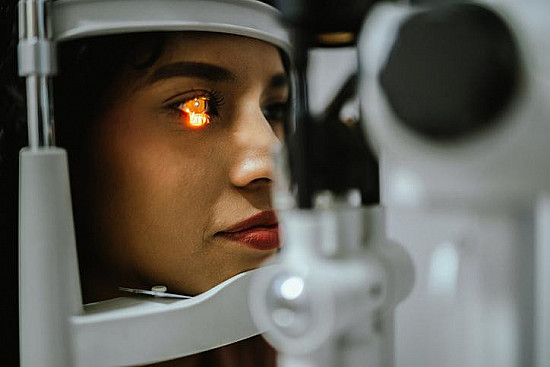Ablation for atrial fibrillation
Why and when should you consider undergoing an ablation procedure — and how well does it work?
- Reviewed by Deepak L. Bhatt, M.D., M.P.H, Former Editor in Chief, Harvard Heart Letter
If you have atrial fibrillation (afib) — a heart rhythm disorder marked by a rapid, irregular heart rate — you may have wondered about catheter ablation. For this therapy, a doctor guides a thin flexible tube (catheter) through a large vein up into the heart. A device at the tip of catheter emits energy that destroys (ablates) the tiny patches of heart tissue causing the heart's electrical misfires (see illustration).
Traditionally, ablation has been used as a second-line treatment for people with afib who have debilitating symptoms and have had no success with medications. But evidence increasingly suggests that undergoing ablation earlier in the course of the disease may be a good option, says Dr. Paul Zei, director of the Comprehensive Atrial Fibrillation Program at Harvard-affiliated Brigham and Women's Hospital.
The chaotic heartbeat of afib often comes and goes, but it may eventually become chronic (see "Afib: How long, how often?"). While some people have no symptoms, most notice a fluttering, thumping sensation, and their heart rate may soar to 175 beats per minute or even higher. Dizziness, fatigue, breathlessness, and other symptoms can occur. But the most serious consequence is an increased risk of stroke.
"There's a phrase cardiologists use: 'Afib begets afib,' which means that more frequent, longer bouts of afib may trigger cellular changes that create other electrical instabilities inside the atrium," says Dr. Zei. In some ways, he says, managing afib is similar to fighting cancer: Early treatment with surgery and medication often controls the disease over the long term. But if you don't catch the problem until after it has spread, it's much harder to treat.
Catheter ablation for afib
Catheter ablation uses heat energy or extreme cold to destroy the tiny patches of tissue that cause afib. Illustration by Scott Leighton |
Earlier ablation therapy
In 2020, a large international study in The New England Journal of Medicine(NEJM) found that people recently diagnosed with afib fared better when they were treated with rhythm control strategies — including certain medications or ablation — rather than standard first-line therapy, which usually involves drugs such as beta blockers that slow down the heart.
However, anti-arrhythmia drugs, such as dofetilide (Tikosyn) and flecainide (Tambocor) don't always work. They often cause fatigue, sap energy, and in rare cases, trigger a dangerous heart rhythm. Two subsequent, smaller studies in NEJM that compared ablation to anti-arrhythmia drugs found lower rates of recurrent afib and better quality of life among people treated with ablation compared with medications.
Ablation success rates have improved dramatically in the two decades since the procedure was introduced. In addition, complication rates have dropped as doctors have gained experience doing the procedure. The overall success rate for catheter ablation is around 75%. People sometimes undergo a second procedure if the first one isn't effective; this boosts the success rate to nearly 90%. However, many factors can affect your outcome, including how long you've had afib, your age, and any other health problems you may have.
Afib: How long, how often?Episodes of afib are often unpredictable, sometimes lasting mere seconds but sometimes far longer. Over time, afib can become constant. Experts classify the disorder into four categories based on how long episodes last. Paroxysmal: Episodes occur intermittently (anywhere from daily to several times a year) but resolve on their own or with intervention within seven days of starting. Persistent: An episode lasts for longer than seven days. It does not resolve on its own and requires some type of treatment. Longstanding persistent: The arrhythmia is continuous and has lasted longer than a year. Permanent: The arrhythmia is continuous, has lasted longer than a year, and no longer responds to treatment. |
Ablation advice
"If you're considering ablation, ask about the success rate of your doctor's program, and how they measure and track success," advises Dr. Zei. Keep in mind that completely eliminating your afib may not be possible. But occasional, brief bouts of afib during the years following an ablation rarely cause symptoms and are unlikely to affect heart function, he says.
Because afib can promote clots and increase the risk of stroke, many people need to take anti-clotting drugs such as warfarin (Coumadin), apixaban (Eliquis), dabigatran (Pradaxa), and rivaroxaban (Xarelto). While some people may be able to stop taking these medications after a successful ablation, those at higher risk (due to high blood pressure or diabetes, for example) usually should not.
About the Author

Julie Corliss, Executive Editor, Harvard Heart Letter
About the Reviewer

Deepak L. Bhatt, M.D., M.P.H, Former Editor in Chief, Harvard Heart Letter
Disclaimer:
As a service to our readers, Harvard Health Publishing provides access to our library of archived content. Please note the date of last review or update on all articles.
No content on this site, regardless of date, should ever be used as a substitute for direct medical advice from your doctor or other qualified clinician.

















